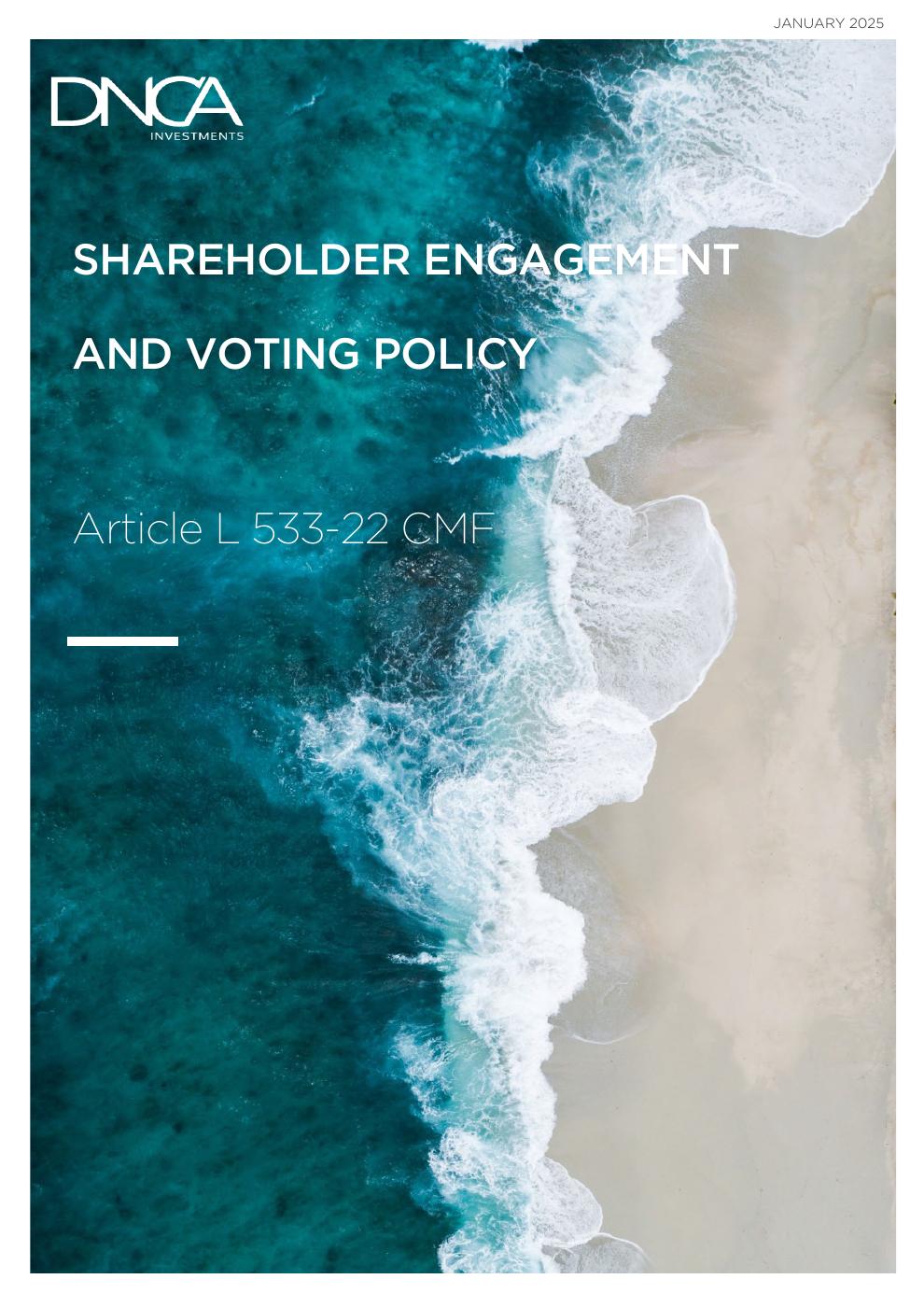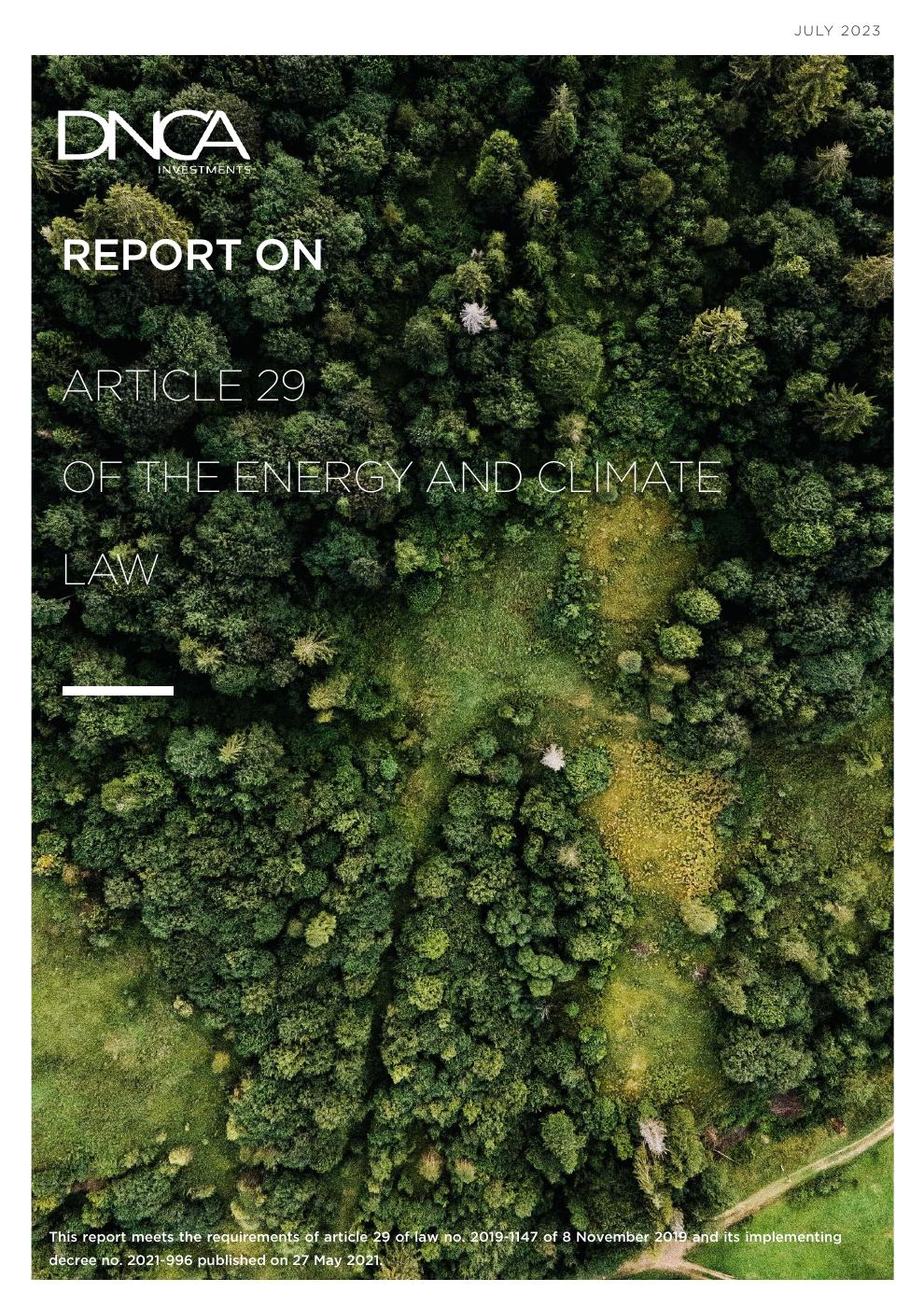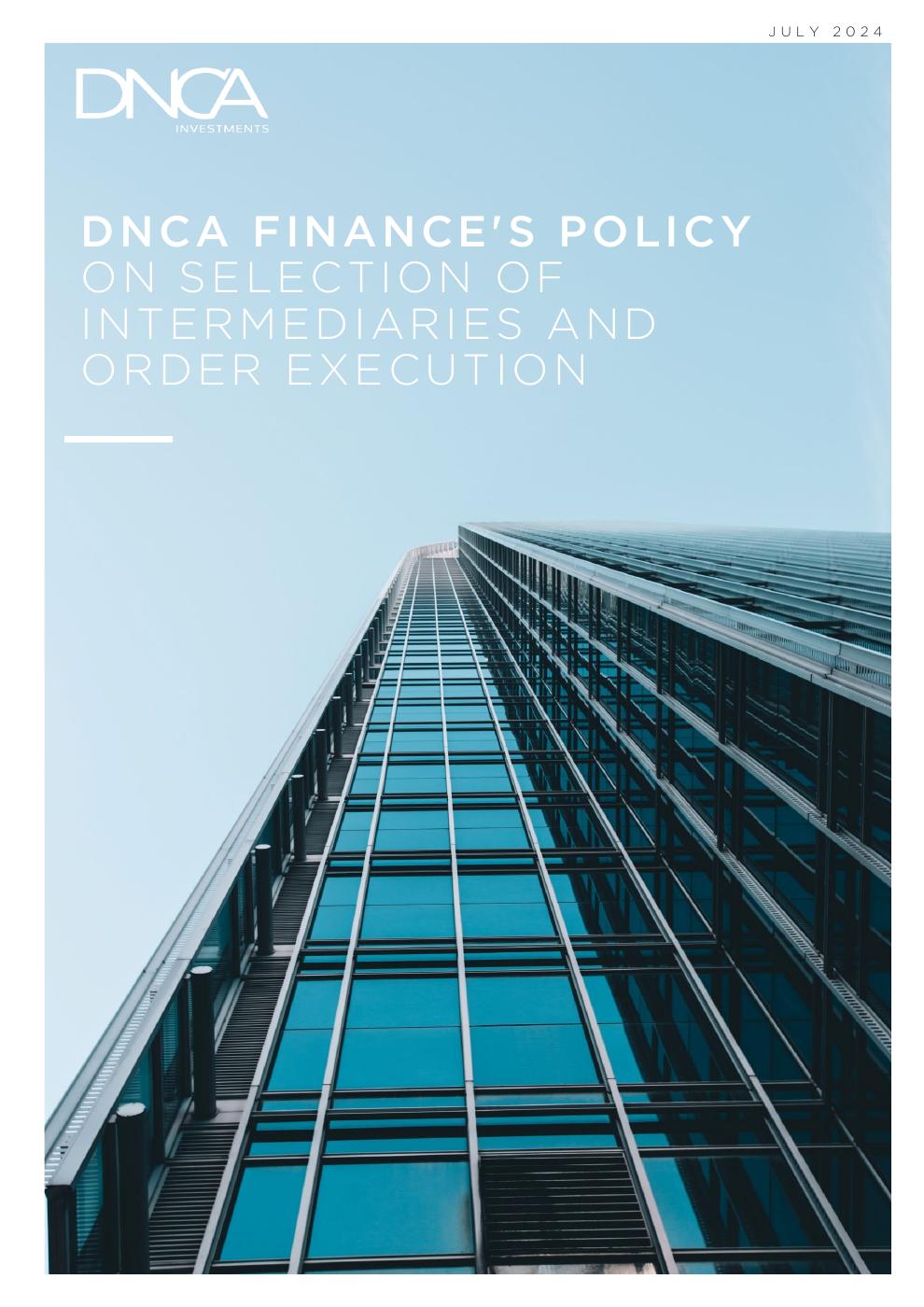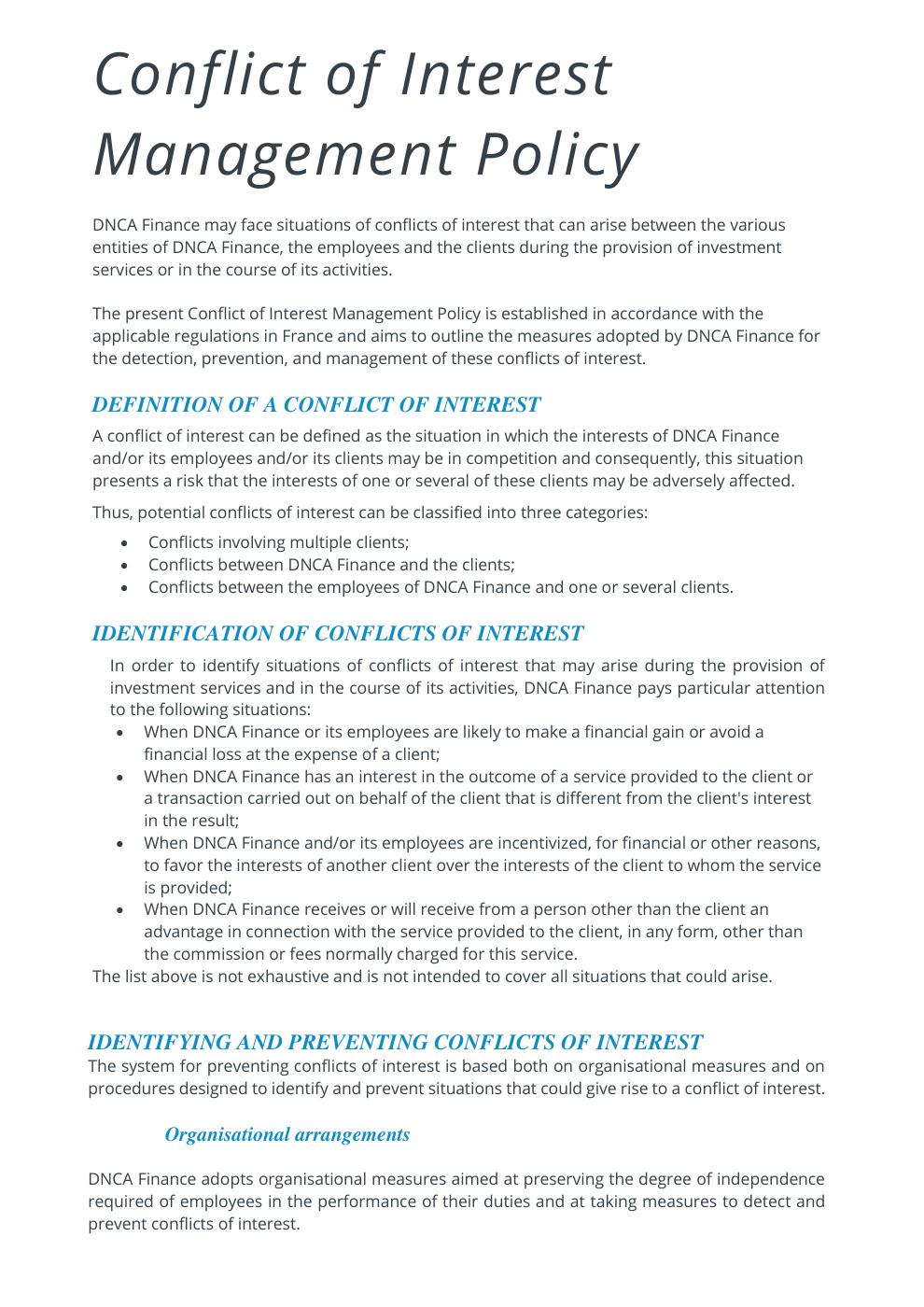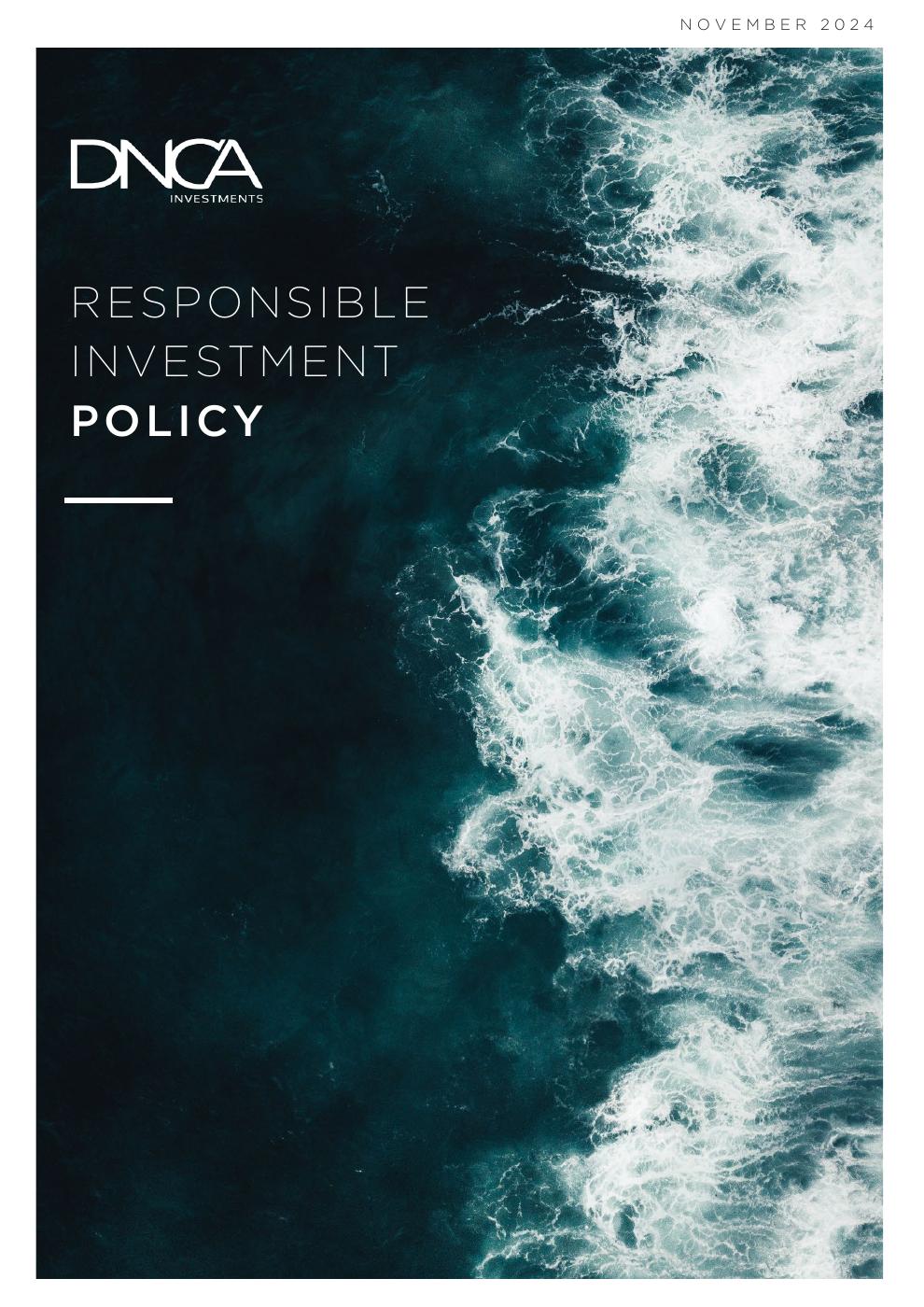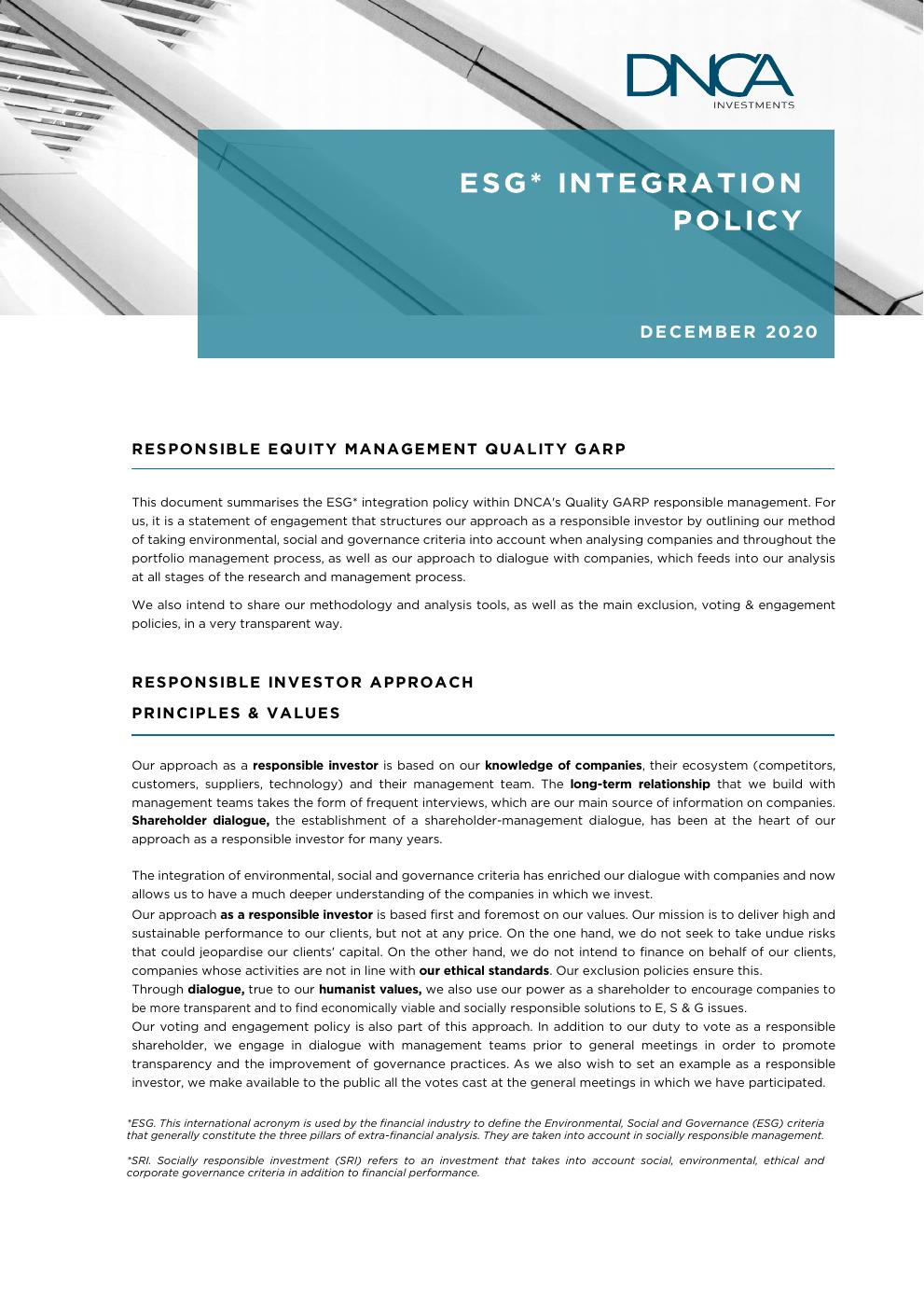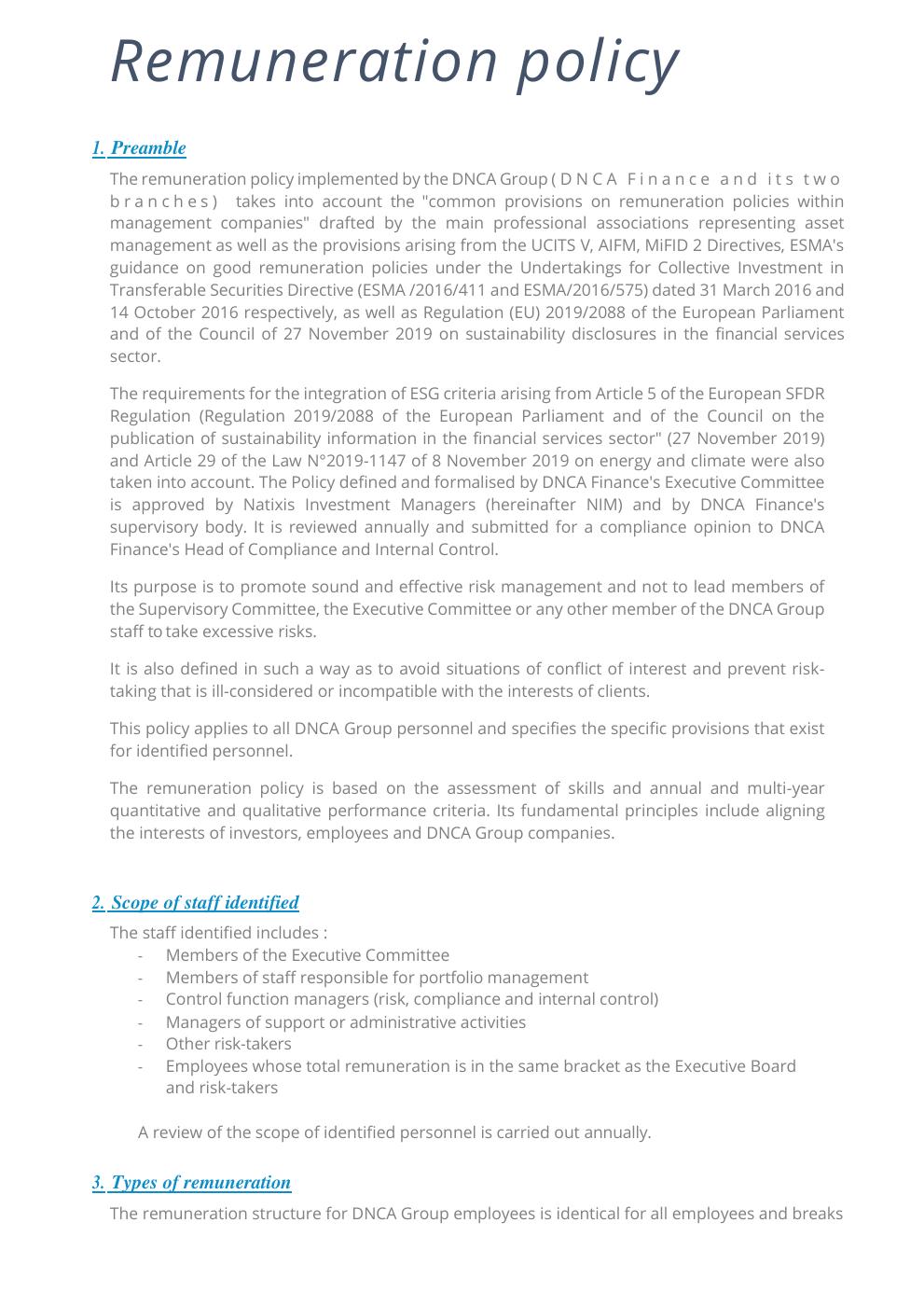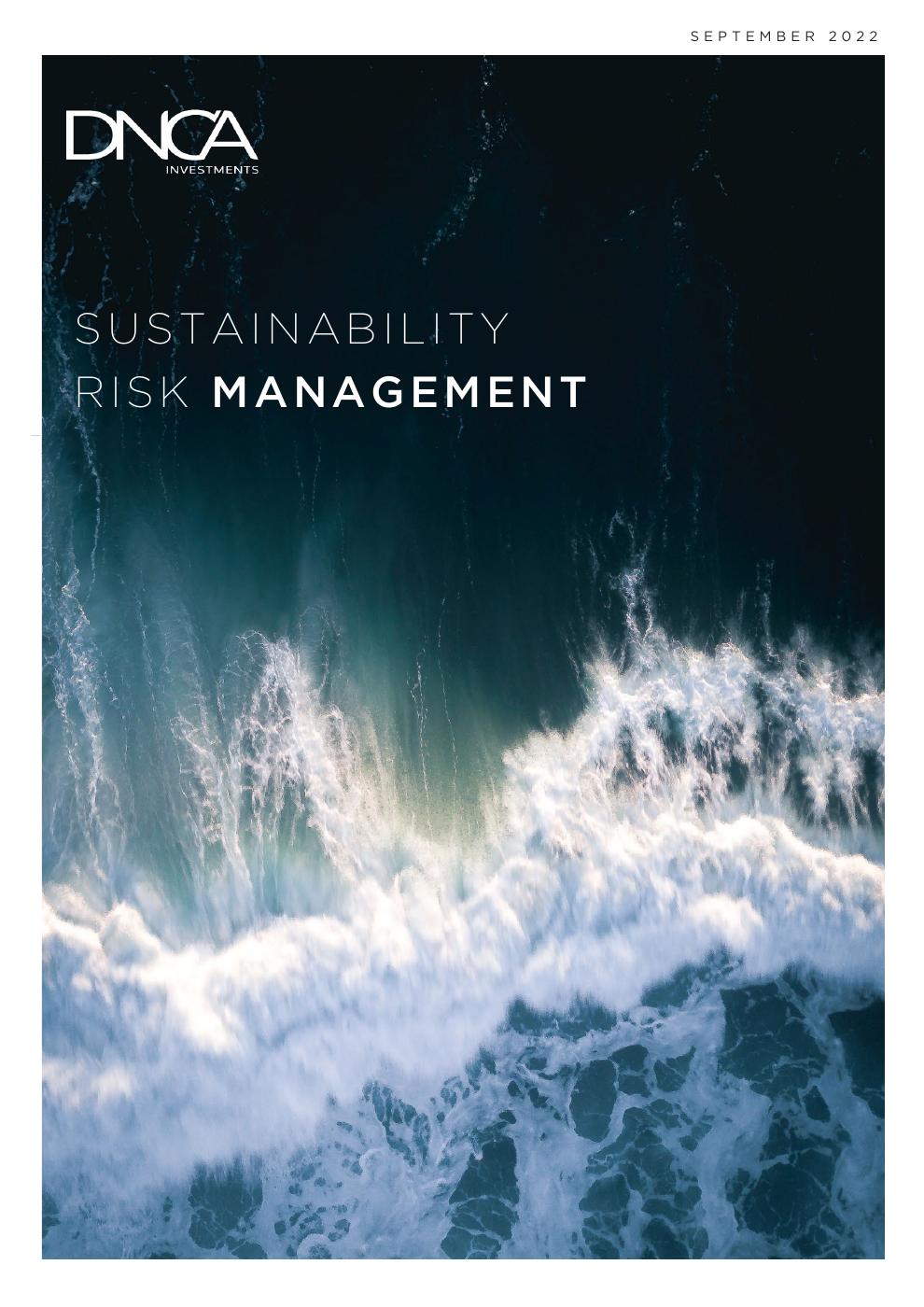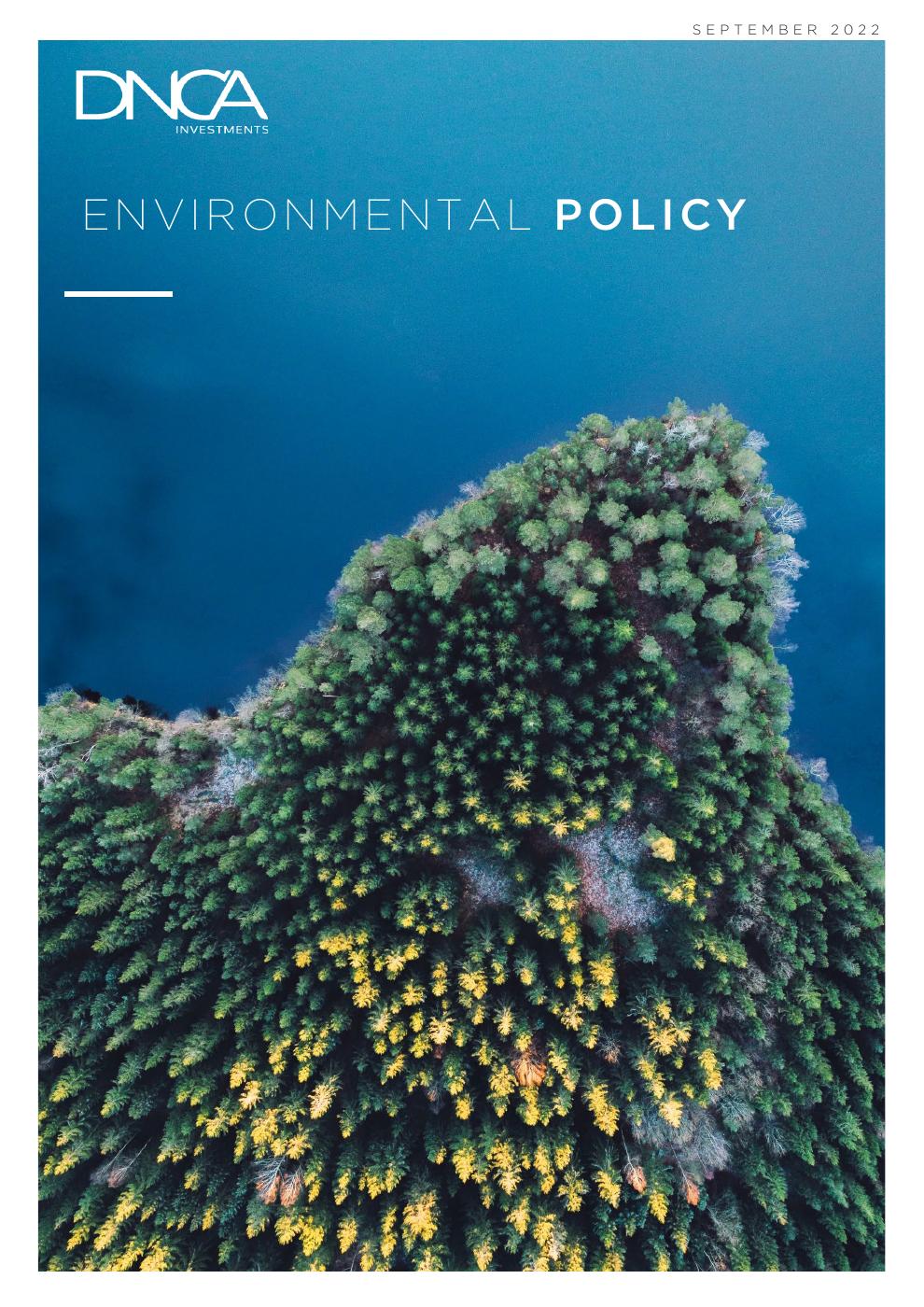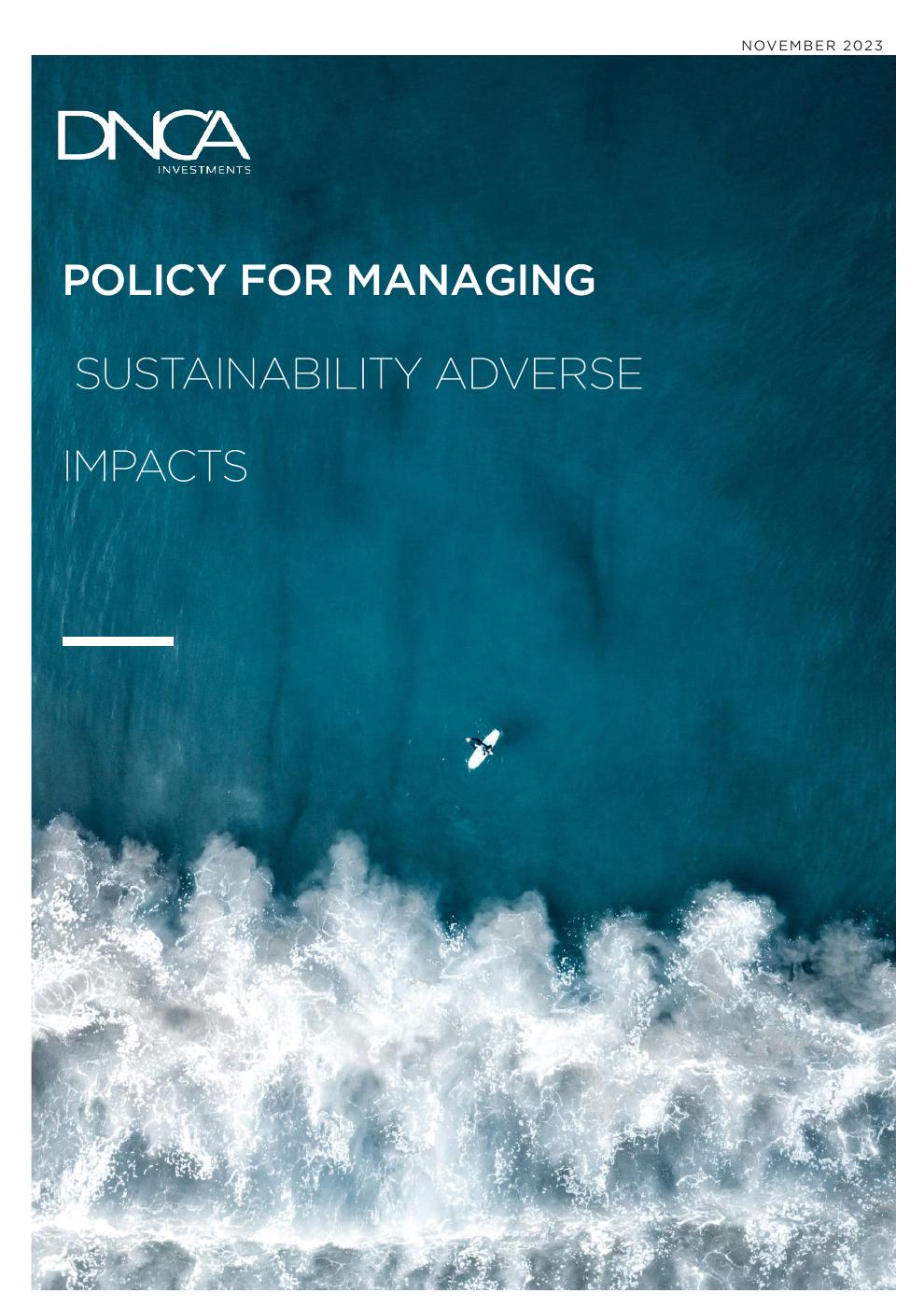Articles L533-22-§II and R533-16-0 of the Monetary and Financial Code
In accordance with the terms of L533-22 CMF, which provides for the application of the "comply or explain" principle, it is hereby specified that, given the brevity of the application period provided for by the regulations, the system for the communication mentioned in L533-22-§II to the investors referred to in R533-16-0 has not yet been finalized. It will be published on our website as soon as possible.
Shareholder commitment policy and voting policy
Engagement report and report on the exercise of voting rights
Report Article 29 of the energy and climate law
this document aims to inform our clients of the selection policy for the financial intermediaries to which we entrust order execution as part of the management under mandate, such as ucits management.
it has been prepared in accordance with articles l 533-18 of the french monetary and financial code (code monétaire et financier) and 314-75-1 of the general regulations of the french financial market authority (autorité des marchés financiers, hereinafter 'AMF').
- Clients concerned
- Financial instruments concerned
The selection policy in force at our company applies uniformly to all our clients, whether professional or otherwise. the implementation of this policy's principles differs depending on whether collective management or management under mandate is involved.
The selection policy in force at our company applies to all financial instruments traded by our company. dnca finance systematically entrusts its orders to an intermediary, whatever the financial instrument.
Our market intermediary selection policy takes account of :
The conditions taken into account are price, cost, speed (order transmission not execution), the probability of execution and settlement (in particular the cost and security of settlement and delivery), size, type of order and any other consideration relating to order execution (such as place of execution and market effect). dnca finance has taken steps to be categorised as a professional client with all intermediaries it seeks to use such that these are required to provide it with the best execution that it itself has to guarantee for its clients.
French research (database coverage and accessibility), european research (database coverage and accessibility), analysis quality (pertinence, originality against consensus, rigour in financial analysis and monitoring of recommendations), the relationship with companies (organisation of financial presentations and face-to-face meetings with managers) and the availability of the research office (presentations on-site, frequency of contacts with the analyst).
A rating of the financial intermediaries is done at the end of each semester by assigning a score from 0 (the worst) to 5 (the best) for each of the conditions mentioned above.
- Best execution for our customers
- Analysis and research
DNCA Finance has authorised all its intermediaries to manage the orders it originates on key regulated markets, multilateral trading facilities and systematic internalisers, in order to be able to benefit from the best implementation conditions on offer.
Special case of the selection of interest-rate financial instruments : since march 2009, dnca finance has used the services offered by BP2S Dealing Services (formely fin'ams) a bnp group company to outsource the placing of orders – that is, their trading – on all interest-rate financial instruments whenever it appeared suitable.
Special case of the management under mandate investment service : the managers of the accounts opened with cm-cic securities may prefer to use cm-cic securities as financial intermediary whenever the ease and speed of execution take priority over other considerations.
Report on intermediation expenses for the year 2023
In accordance with Article 321-122 of the AMF GR
In accordance with Article 321-122 of the AMF GR
In accordance with Article 321-122 of the AMF GR, the Management Company shall draw up a document entitled ‘Reporting on intermediation costs’ when using Investment and Order Execution Services and intermediation fees for the previous financial year amounted to more than 500000 euros.
Conditions under which DNCA Finance has used investment decision support and order execution services:
In 2023, for its collective management activity, DNCA Finance used financial intermediaries who provided execution and investment decision support services, under the conditions defined in the ‘Financial intermediaries selection and execution policy.’
Intermediation fees are received directly or indirectly by third parties that provide services to assist in the investment decision making and execution of orders.
Expenses related to investment decision support services are borne in full by DNCA Finance out of its own resources.
The key to the allocation for 2023 between the execution costs and the fees for the investment decision support and order execution services is therefore as follows:
- Fees related to investment decision support and order execution services accounted for 0% of total intermediation costs since they were borne by DNCA Finance out of its own resources;
- Execution costs thus accounted for 100% of the total intermediation costs paid in 2023.
Conflict of interest prevention
DNCA Finance has put in place a policy for preventing and managing conflicts of interest incorporating the prevention of potential conflicts of interest related to the selection of intermediaries:
- The Company does not receive soft commissions from its intermediaries;
- Each intermediary is subject to a prior selection procedure (see intermediary selection procedure);
- The agreements put in place do not include any minimum volume requirement or incentive pricing arrangements;
- DNCA Finance does not receive any retrocession of transaction fees from its intermediaries.
No conflict of interest was detected in the selection of our intermediation providers in 2023. In addition, the intermediaries are assessed annually in order to estimate the quality of execution obtained from each of them.
DNCA FINANCE has established and maintains an operational procedure for handling complaints from its customers in respect of all management and investment services provided by DNCA FINANCE and its branches.
A complaint is defined as a statement of dissatisfaction by the customer that requires a response. A request for information, advice, clarification, service or provision is not a complaint. (AMF Instruction 2012-07).
Customers (professional or non-professional) may submit any complaints they may have, free of charge, either to their usual contact person (within the company or within one of the company's delegated agents) or directly to the company's Head of Compliance and Internal Control (RCCI) (at service.conformite@dnca-investments.com) by writing to the company's registered office (19 Place Vendôme, 75001 Paris, France).
After receipt at the company's registered office, the portfolio management company has ten days to acknowledge receipt and a maximum of two months to respond to any complaint from the date the complaint was sent.
In the event of persistent disagreement, you may have access to mediation. The list of out-of-court dispute resolution bodies and their contact details according to your country and/or that of the service provider concerned can be freely consulted by following the link : https://finance.ec.europa.eu/consumer-finance-and-payments/retail-financial-services/financial-dispute-resolution-network-fin-net/members-fin-net-country_en
Last update: 15/03/2024
Statement on due diligence policies regarding the main negative impacts of investment decisions on sustainability factors
Article 4 of the SFDR (EU) 2019/2088 on sustainability reporting in the financial services sector requires transparency on negative sustainability impacts on sustainable investment objectives or on the promotion of environmental or social characteristics in the investment decision making of our relevant products.
DNCA Finance wishes to strengthen the consideration of negative sustainability impacts in its decisions and organisation. The governance of these topics will be defined in procedures to clarify the roles and responsibilities of the different teams.
DNCA Finance already considers negative sustainability impacts on investment objectives and has published various documents confirming this.
Indeed, DNCA Finance has published its Responsible Investment Policy, which outlines its environmental, social and governance (ESG) investment policies and practices. It illustrates the commitments to responsible investment in all its activities, in compliance with French and international regulations and their evolution. The policy is available on the management company's website.
In addition, DNCA Finance has developed a voting policy that defines the principles it intends to apply when exercising voting rights at general meetings. These principles reflect best practices in corporate governance and form the basis of our philosophy and vision of a quality corporate governance system.
This voting policy includes a "Corporate Responsibility" section that describes DNCA Finance's belief in integrating extra-financial elements into management to improve the risk/return ratio over time.
Although DNCA Finance votes on social, political or environmental shareholder proposals on a case-by-case basis, we systematically support any resolution where we consider the subject matter - after analysis - to be conducive to more responsible practices by the company's business. In addition, DNCA Finance will vote in favour of shareholder resolutions requesting the inclusion of non-financial criteria in executive remuneration policies, unless such requests represent constraints that are not in the interest of the company and its shareholders.
DNCA Finance is also committed to combating climate change. In addition, DNCA Finance is working with a leading climate provider to offer its clients solutions to integrate climate risks such as transition risk and physical risk into their investment management.
Finally, a number of initiatives are also described in the general CSR policy of the Natixis Group.
DNCA Finance is not currently in a position to monitor all the indicators with a negative impact on sustainability, as a certain amount of data, the sources of which have not yet been identified, does not allow for all the reports required by the SFDR regulation to be provided at entity level. DNCA Finance will do its utmost to be able to provide and produce them in a comprehensive manner and will modify its position accordingly.
However, DNCA Finance is already able to assess the climate risks associated with all its investments in corporate securities (equity and debt) and plans to provide a set of non-financial performance indicators for the majority of these investments by the end of June 2021.
Best selection policy
Object
The purpose of this document is to inform our clients of the selection policy of financial intermediaries to whom the execution of orders is entrusted concerning the management of mandates and the collective management.
It is prepared in accordance with:
- in France : - article L 533-18 of the Monetary and Financial Code (Code monétaire et financier);
- article 31475-1 of the AMF General Regulations (Règlement général de l’AMF);
- in Europe : - articles 27 and 28 of Delegated regulation N°231/2013 of the Commission supplementing Directive 2011/61 / EU ("Level 2 Regulation") (AIFM);
- article 25 of the Directive 2010/43/UE and Directive 2014/91/EU of the European Parliament and of the Council of 23 July 2014 amending Directive 2009/65/EC on the coordination of laws, regulations and administrative provisions relating to undertakings for collective investment in transferable securities (UCITS);
- articles 24 and 27 of the Directive 2014/65/EU of the European Parliament and of the Council of 15 May 2014 on markets in financial instruments (MIFID II) as far as investment services are provided.
DNCA Finance undertakes regular controls (at least annually and on the occasion of any significant change in organization or structure) on the efficiency of its selection policy, with a view to fix, where appropriate, any deficiencies that have been detected.
The first level control teams and the Compliance team conduct periodic controls on execution of orders by DNCA Finance to verify the adequacy of the service rendered under the present policy.
Evidence of the proper application of the selection and enforcement policy is maintained in accordance with regulatory needs.
Perimeter
• Clients concerned
The selection policy in effect in our company applies in the same way to all our clients, whether they are professionals or not. The implementation of the principles of this policy differs according to whether it is collective management or private wealth management.
• Financial instruments concerned
The selection policy in effect at our company applies to all financial instruments traded by us. DNCA Finance systematically entrusts its orders, regardless of the financial instrument, to an intermediary or counterparty.
Methods of selection and evaluation of intermediaries
Our selection policy for market intermediaries takes into account:
The criteria of price, cost, speed (order transmission and not execution), probability of execution and settlement (including the cost and safety of delivery), the size, the nature of the order or any other consideration relating to the execution of the order (trading venues, impact on the market, ...) .DNCA Finance has taken care of to be categorized as a professional client to all its intermediaries so that they are obliged to provide it the "Best Execution" that it must itself guarantee to its clients.
Are taken into account France research (coverage and accessibility of databases), Europe research (coverage and accessibility of databases), the quality of analyzes (relevance, originality compared to consensus, rigor in the analysis and the financial evaluation, follow-up of recommendations), contact with companies (organization of financial presentations, face-to-face meetings with managers), availability of the research office (on-site presentations, frequency of contact with the analyst).
An evaluation of the financial intermediaries is made at the end of each semester, with a score ranging from 0 (the worst) to 5 (the best) for each of the criteria above.
• "Best Execution" for our clients
• Analysis and research
Trading venues
DNCA Finance has authorized all its intermediaries to direct the orders it initiates to regulated reference markets, multilateral trading facilities (MTF Multilateral Trading Facilities) and systematic internalisers in order to benefit from the best execution conditions offered.
Special case of the selection of interest rate instruments: Since March 2009, DNCA FINANCE has been using the services offered by FIN'AMS, a BNP Group company, to outsource placing orders (ie their negotiation) on all interest rate instruments whenever it deems relevant.
Special case of the investment service for private wealth management : for orders relating to equities and bonds, DNCA Finance has selected the CIC, as intermediation table, authorized for the reception / transmission of orders (approved as credit establishment - investment service provider by the ACPR (Autorité de Contrôle Prudentiel et de Résolution)).
Special cases
The merger of trading orders is possible if it is reasonably expected that the aggregation of orders will not be detrimental to any of the investment funds concerned and will be allocated evenly taking into account the volume of orders and the execution prices, based on pre-defined criteria he follows.
In the event of severe market disruption and/or any deficiency concerning an internal or an external system, the principles of this policy may not be respected in full, but then again DNCA Finance will do everything within its reach to meet its Clients’ expectations.
